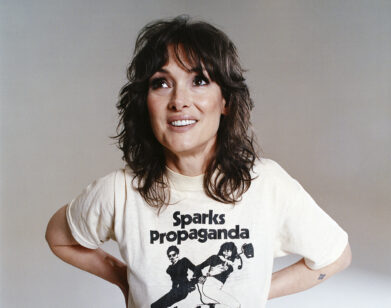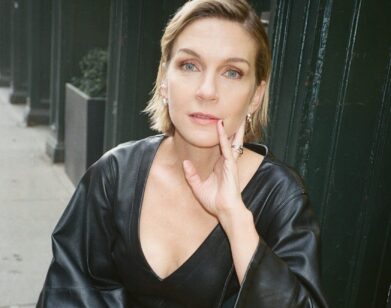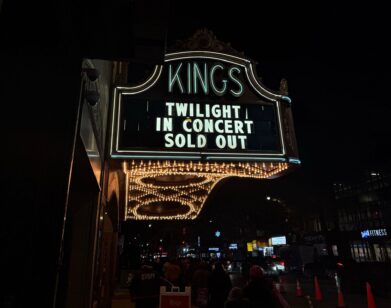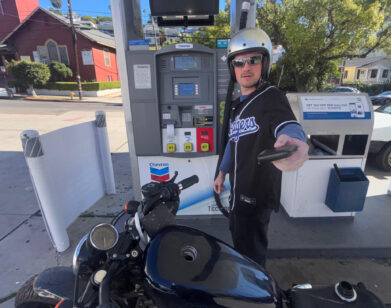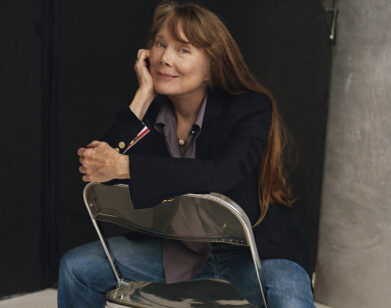Discovery: Ben Rosenfield
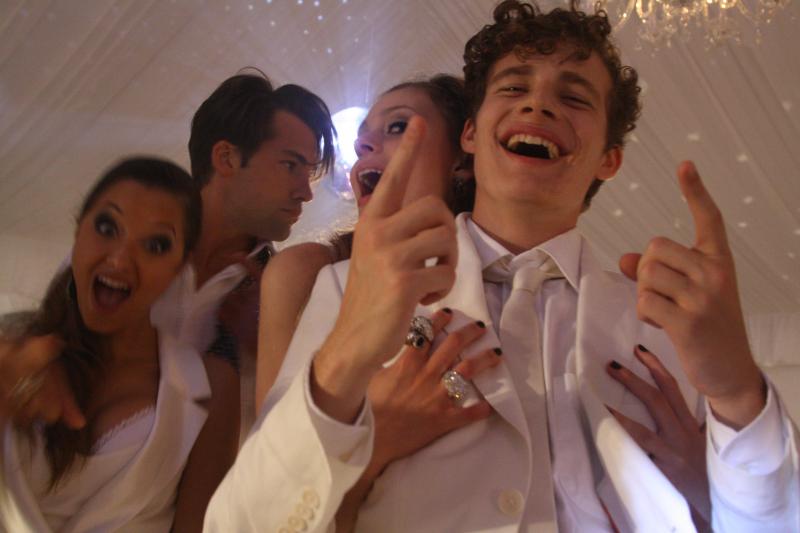
ABOVE: (LEFT TO RIGHT) VALENTINA DE ANGELIS, GRANT GUSTIN, NICOLA PELTZ, AND BEN ROSENFIELD IN AFFLUENZA. PHOTO COURTESY OF JOHNNY QUINONES.
Ben Rosenfield has all the luck. Or perhaps he has all the talent. Over the course of his three-year career, the 21-year-old actor has performed in a play with Carey Mulligan (his first professional role); played Steve Buscemi’s hapless nephew, Willie, in HBO’s Boardwalk Empire (his first television show); and filmed upcoming features with directors J.C. Chandor (Margin Call, All is Lost) and Hannah Fidell (A Teacher).
Affluenza, which opened in New York on Friday and expands this week, is another significant project for Rosenfield: his first leading role. Loosely based on The Great Gatsby (bear with us), the film follows Fisher Miller, a disenchanted and dissatisfied child of divorced parents (his dad is gay; his mother is soon to be remarried). Following the death of his grandfather, Fisher rebels against his middle-class parents by spending a summer with his much “affluent” uncle (Steve Guttenberg) and cousin, Kate (Nicola Peltz).
Through Kate (Daisy), Fisher meets the two points of her love triangle, Dylan Carson (Gatsby) and Todd Goodman (Tom Buchanan). Dylan is newly rich, sensitive, and infatuated with Kate; Todd has always been rich, is insensitive, and sort of likes Kate (they date), but not enough to remain faithful. Fisher lets himself become enveloped in Kate’s world, which is very quickly collapsing around her (financial crisis etc.). We won’t spoil the ending.
AGE: 21
HOMETOWN: Montclair, New Jersey
EXTRA-CURRICULARS: I play guitar and the harmonica and I sing. I’m working on releasing an album soon-ish, maybe someday. I listen to a lot of different music, but I guess you could get a sense from the acoustic guitar and harmonica that [my sound] is sort of folk-y or I don’t know. You don’t want to put labels on things too much; I’d rather have audiences interpret that kind of stuff.
BACKGROUND: My mother’s an actress and a teacher and my dad teaches stand-up comedy. He founded the school called the American Comedy Institute, which is like a conservatory for comedians, and directs theater as well. I’ve been around comedy and theater my whole life. It wasn’t something where my parents were like, “You should be an actor, Ben. We’ll train you.” It was something that I fell in love with on my own and they completely believed in me and supported me. They were smart—when I was in middle school, I was starting to get really, really passionate about it and I wanted to go and meet with this manager and my parents told me, “Just wait until you can do all of this on your own—you can go on all of these auditions by yourself, this can be your career and your path.” I’m really grateful for that. I wasn’t auditioning for stuff when I was in middle school; I think it can warp your mind a little bit. Was I disappointed? Maybe a little, but I really am so grateful because I just had a normal—I mean, I don’t know what normal is—but normal public school life and all of that. It’s nice to see the world without this perspective of an actor when you’re a child.
FIRST ROLE: My first big proper role was I played Tevye in eighth grade in Fiddler on the Roof. That was one of the best things I’ve ever done—still to this day, I’d say. I have it on VHS. Musical was a popular thing to do in our middle school, so I had to audition. It was between me and my best friend, so it got a little contentious, but he got Lazar Wolf, which is also a great part. Did I mess up at all? Oh no, people wrote into the local newspaper about it. [laughs] It was good. I’m like, “I don’t know if I’ll ever get to play Tevye again and it’s an amazing part so I really lucked out on that one, in eighth grade.”
Is it on my résumé? A couple weeks ago, someone brought up, “Oh, you played Tevye at Glenfield Middle School?” I was like, “That’s on there?” So I guess it is.
PLAYING THE PROTAGONIST: I was doing a play [Through a Glass Darkly, 2011] Off-Broadway at the Atlantic Theater Company and the casting director for Affluenza, Sig De Miguel, came to the play and thought I’d be really good for the role. It was a good play. I think a lot of people came to see it. I auditioned for [director] Kevin [Asch] and it was pretty immediate that we both were like, “This makes sense.” I got the part, and then we had to wait a year to make it. I ended up doing two films in the interim, which was really great because—well, they’re both nice movies, but also because [Fisher in Affluenza] was the biggest part I’ve played professionally to date. This play that I was doing was my first gig; I was 18. It was good to get a little experience on a proper film set before going off to kind of lead a film.
GETTING FAMILIAR: For me, a way to get into certain characters is through listening to music, so finding music and being like, “This made me feel like Fisher.” That’s often my first step beyond just proper script analysis. [For Affluenza], I was listening to a lot of Silver Jews, a lot of Elliot Smith. Stuff like that.
MR. MILLER: Would I get on with Fisher? I’m not so sure. Probably. Maybe not in the beginning of the movie. I have no idea. So much of it is me, and would I get along with myself? I really don’t know. Obviously it is a character, but there have been a couple of roles where I have related to the feelings and didn’t try and make it something completely separate, but bring a lot of myself into it. Fisher was one of those roles for me. I could relate to a lot of feelings that he was having at that time. I wasn’t super concerned about detailed character work the way you would if you were playing Truman Capote or something like that. That would be a little more specific. I felt, at that time, Fisher was very similar to me so I let it be that way. Now it doesn’t feel like me at all. It was two years ago. I don’t relate that much to who I was two years ago.
MR. CARSON: Fisher was the only person who remotely cared about Dylan, Gregg [Sulkin]‘s character, in the film. You can’t really ask for more than that—to have someone know that there’s one person in the world that cares for you.
FINAL CUT: I can’t even remember what the original ending was [for Affluenza]. There’s been a few endings that we’ve played around with—that Kevin’s played around with. Kevin is a real collaborator; he’s not a dictator at all. He wants to work with his actors and he trusts them and that’s always all you can ask for, really. It never felt static in any way. It was very like, “Let’s try it this way, that way.” Things changed as it went; we discovered stuff and we went with it.
A GREAT DIRECTOR…: Has the ability to guide a scene and a story in a direction without you really being aware of it. [They] don’t get too nitpicky and are trusting—they’re guiding you along and you’re not quite aware. They are completely in control of what it is that you are doing.
AFFLUENZA IS CURRENTLY PLAYING AT SELECT THEATERS IN NEW YORK. IT WILL OPEN IN LIMITED RELEASE IN L.A. ON FRIDAY.

